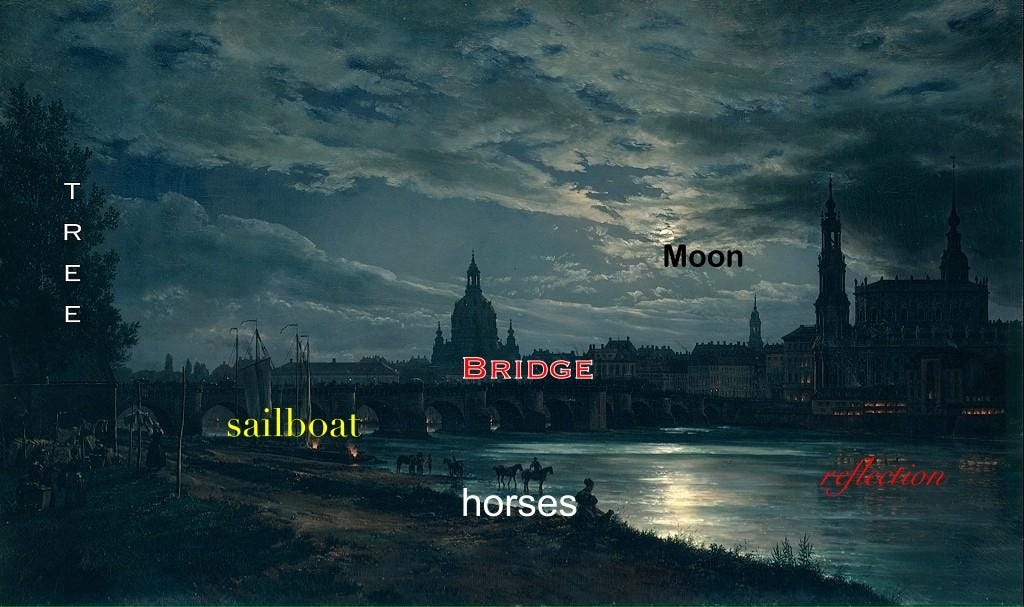Communicative Minima
In the Machine Learning literature much fuss is made about local minima, locations in the parameter space in which no adjacent solution is better. Most local minima are not global minima i.e. they are not the best solution to the problem. There are many interesting challenges and solutions regarding getting out of local minima.
Most of the time we don’t think of the optimizers as having large amounts of agency, we just assume they’re bouncing around in the world to try to find better solutions. This is not true in human life, where we have needs that require constant maintenance (eating, showing up to work, interpersonal relationships), but are also trying to find solutions that work better as we feed our constantly running engine. This creates strange dynamics, especially when it comes to communication.
What makes a new word come into common usage? Education is a powerful tool, but most words aren’t synthetically invented and then taught to the next generation. Most governments don’t really have the power to enforce a tight enough curriculum to make that really work and aren’t 100% sure of exactly what kind of linguistic changes they’d want to make. Though some governments, such as the Chinese Government, specifically create a lingua franca using exactly this method.
Regardless, most of the time random people come up with new words and other people use them to signal something. A lot of the time this signaling is social, for example “Drumpf” referring to Donald Trump, which originates from a comedic sketch and is used to mock him. No one expects this word to stay forever, because new, more relevant nicknames with new signals will come about. Sometimes, though, words stick around because they refer to something that becomes incredibly salient and needs a reference point for proper coordination. This is the case with “selfie”.
The problem I’d like to gesture at here is that when certain linguistic devices cut-up the world usefully it is often impossible to get new linguistic devices off the ground, even if a new vocabulary would be useful. Old devices make it so easy to do certain things that they become conflated with the underlying objects. This is inevitable: the word selfie has led to more selfie culture because of the various kinds of implications taking a picture of one’s self and posting it somewhere can arouse from various audiences, feeding into a loop where groups put meaning into these categories. But it also blocks non-selfie interpretations of such photos because people see that you took picture of yourself and think that the point must be that it is a selfie.
Sarah Perry uses the following reworking of Johan Christian Dahl’s View of Dresden by Moonlight (1839) to illustrate a point about forced shaping of attention and representation:
If this was the view, most conversations would have a lot less to say about the clouds, and likely the things they would say would be in opposition to the business of the imposed labels given in the lower half of the painting. The interesting thing is that the clouds are the least occluded by the labels, but there’s so much obvious mental “work” to be done around the labels, that people will keep reaching for them. If this piece became very important, then an aspiring critic would, of course, purposefully talk about the clouds as counter-point, but she would have to reach for it and discover it in opposition to the classic discourse.
But what if everything is like that? What if most of the ways we talk about things is cutting up the world with labels given to us by the intermediary of presentation? And what if we are slowly molded into this paradigm even if we started out seeing things differently, because these are the labels which allow us to communicate with other people without losing their attention?
When I think like this way, I almost feel guilty, as if I’m dreaming up a conspiracy that couldn’t possibly be true. But then I meet people who have invented words for some of the things I could only gesture at, like the fact that there’s a pervasive kind of rationalism in many intellectuals that makes them think they could redesign everything better.
I wonder how we might scout the world for linguistic needs to fill? Of course one needs to be selective, we call attention to things that we believe need to be dealt, could cause joy, or serve some other interest. But are there patterns that allow us to see yet-to-be-filled interests? Or am I thinking about things the wrong way around, and the idea of a yet-to-be-filled is just me applying a fatalistic lens to history?
Yet I can’t help but feel that there must be general patterns of coordination. And that if there are such patterns and two individuals or groups are finding it difficult to coordinate, that they might be better served by specifically attempting to scaffold the creation of new vocabulary around these general patterns.


